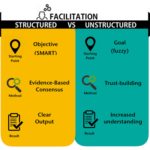The pre-teen years are a crucial period of transition for children, filled with rapid developmental changes and unique challenges. As children move from the wide-eyed days of early childhood into the complex social and emotional arenas of adolescence, parents need to equip themselves with a variety of resources to guide and support their growing children. This article provides a comprehensive overview of essential tools and strategies that can help parents effectively navigate these formative years.
Understanding the Pre-Teen Mind
Firstly, it is important for parents to understand the psychological changes their children undergo during pre-teenage years. Children between the ages of 10 and 12 begin to develop greater independence, a deeper capacity for abstract thinking, and a stronger sense of personal identity. Resources such as books by child psychologists and articles from trusted pediatric associations can offer invaluable insights into the pre-teen psyche. Understanding these mental and emotional shifts is crucial for parents to foster open communication and supportive relationships.
The Role of Technology
In today’s digital age, technology plays a significant role in the lives of pre-teens. While it can be a great educational tool and a way to connect with peers, unchecked exposure can lead to issues such as screen addiction and cyberbullying. Parents should consider resources like family-friendly tech blogs, apps that monitor and limit usage, and online safety workshops. These can provide strategies for managing screen time and ensuring that children’s digital interactions remain positive and safe.
Building Social Skills
As pre-teens strive to carve out their own social identities, they may face challenges such as peer pressure and bullying. Workshops and seminars on social skills for children can be beneficial. These programs teach essential skills like empathy, resilience, and conflict resolution, which are pivotal during this stage. Additionally, enrolling children in clubs and activities can provide them with opportunities to practice these skills in a social setting.
Academic Support
Academic expectations tend to increase significantly as children approach their teen years. To support their educational journey, parents can utilize tutoring services, educational apps, and homework-help websites. These resources can provide personalized academic assistance and help bridge any learning gaps. Parent-teacher associations and educational consultants can also offer guidance on how to support children’s learning at home.
Cultivating Interests and Talents
Pre-teen years are a perfect time for children to explore different interests and discover their passions. Parents can encourage this exploration by providing access to music classes, art workshops, sports teams, and science clubs. Local libraries and community centers often host a variety of such activities, making them excellent resources for parents.
Emotional Well-being
Emotional upheavals are common during the pre-teen years due to hormonal changes and social dynamics. Resources like child therapists, counseling services, and books on emotional intelligence can be crucial. These provide children with the tools to understand and manage their emotions effectively. Parental understanding and proactive communication are key to helping children navigate emotional challenges.
Encouraging Reading and Literacy
At this age, children are capable of tackling more complex texts and understanding nuanced narratives. Encouraging your child to dive into the world of books is a great way to support their emotional and intellectual growth. There are many compelling and age-appropriate books for 11 year olds that can help them develop empathy, critical thinking, and creativity. From fantasy and science fiction to non-fiction and historical narratives, the right books can ignite a lifelong passion for reading and learning.
Staying Engaged as a Parent
Finally, it’s crucial for parents to stay engaged. Attending parent workshops, reading up-to-date parenting books, and participating in community parenting groups can provide ongoing support and fresh perspectives. Remember, the journey through the pre-teen years is not just about overseeing children but growing alongside them.
In conclusion, navigating the pre-teen years requires a multifaceted approach, combining understanding, patience, and the right resources. By equipping themselves with these tools, parents can ensure that this critical period is a time of positive growth and development, setting the stage for the teenage years and beyond. Whether it’s through books, technology, or community support, the key is to remain involved and proactive in all aspects of your child’s life.


